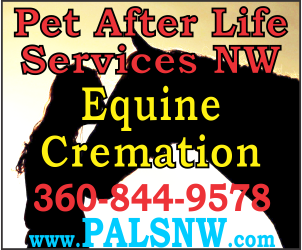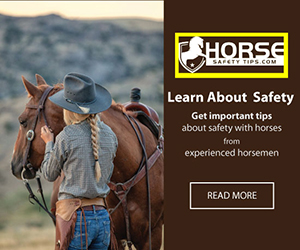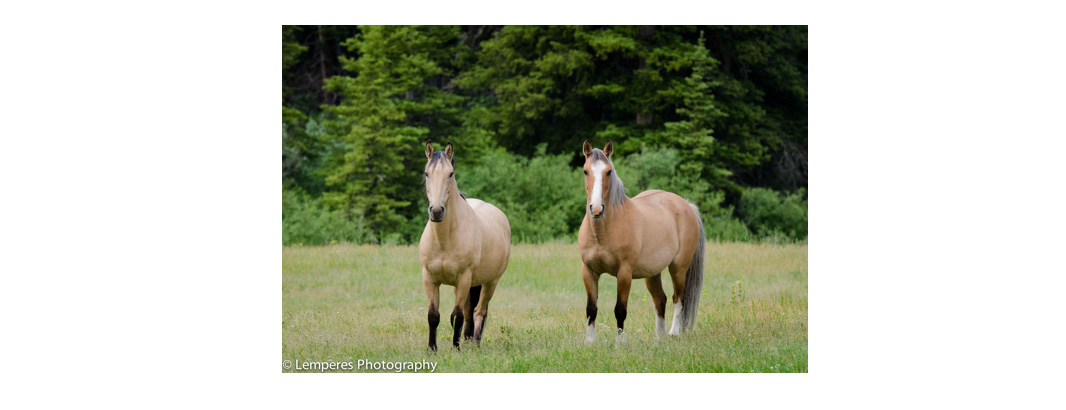How to Properly Identify and Feed Carbohydrates
by Eleanor Blazer
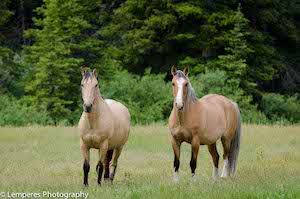
Do the terms equine metabolic syndrome, Cushing’s disease, peripheral Cushing’s, insulin resistance and hypo-thyroid sound familiar? The common symptom shared by of all these conditions can be obesity. Weight and insulin problems are on the rise and it’s no laughing matter. Feed and supplement manufacturers know horse owners are looking for an easy way to control these problems. Look in any horse magazine and you will see advertisements for products that contain low starch/sugars/carbohydrates and will help burn fat, or lower blood insulin levels. Like their owners, horses need to eat right and exercise; there is no quick and easy fix.
To determine if an obese horse has one of the above listed syndromes a blood test is required. Contact a veterinarian. Even if the overweight horse tests negative, weight control, nutrition and exercise must be addressed to avoid future problems. The hardest part is taking weight off the horse.
A term every horse caretaker should know is Non-Structural Carbohydrates (NSC). There are two basic types of carbohydrates: structural and non-structural. Structural carbs are fiber, non-structural are sugar and starch. Excessive amounts of sugars and starch lead to weight gain. NSC’s must be reduced in a diet designed for the obese horse however, most hay testing laboratories do not test forages for this and it is not required on a feed tag. In addition, there is no standard method of measuring NSC levels. So, if one manufacturer uses one test and another uses a different test the products cannot be accurately compared. Even within the same lab, variations can occur.
With NSC levels not listed on the feed tag, how does a person know if the product is a safe choice? Oats, corn, barley and molasses all contain high levels of non-structural carbohydrates and most commercial horse feed rations contain these ingredients. The obese horse does not need oats, corn, barley, molasses or sweet feed. He does need vitamins, minerals and enough protein to meet his daily requirements.
If the horse tests positive for one of the syndromes it is even more critical he gets vitamins, minerals and good quality protein because his overall health will be compromised. And, he still needs to lose weight. Most feed companies now offer products that will meet those requirements. “Ration balancers” are excellent sources of vitamins, minerals and protein, without NSC’s or added calories.
In addition to offering a product that meets the daily nutrient requirements without NSC’s, forage quality and quantity must be addressed. Hay and pasture can be a source of non-structural carbohydrates and horses need forage in their diet. As grazing animals their digestive systems need the structural carbohydrates (fiber) that forage provides.
However, forage also needs to be evaluated for NSC’s. Despite the accuracy challenges of testing hay for carb levels, it is the only method we currently have. So, what if you discover you have 500 bales of hay high in NSC’s? Burn it and start over? Fortunately, starch and sugars are water soluble; soaking the hay for at least sixty minutes in hot water, or thirty minutes in cold water, can decrease these carbs.
Pasture can also contain high NSC levels so the time of day an obese horse grazes is critical. The sun pulls sugar and starches into the plants’ leaves and the levels peak in the afternoon. Grazing before noon may help. It is also important to limit the amount of forage the overweight horse consumes. You can’t cut out all the forage as the equine digestive system needs fiber to work properly. Horses need to have at least 1.0 percent of their body weight in forage in order to maintain a healthy gut. The use of a grazing muzzle may be helpful. For more details about feeding forage to overweight horses, or horses that have insulin problems, visit http://www.safergrass.org/.
As in all weight loss programs exercise is also important. In addition to taking weight off, it also helps lower glucose levels. If you have an obese horse in your barn, stop killing him with “kindness.” Take action now.
For information about caring for and feeding horses take the online courses “Stable Management” and “Nutrition for Performance Horses” taught by Eleanor Blazer: www.horsecoursesonline.com.Visit Eleanor’s web site at www.thewayofhorses.com
Originally Published September 2014 Issue
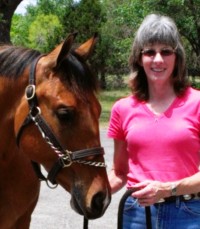
Eleanor Blazer was raised training and caring for horses. She learned to ride and care for the horses her family bought and sold. Many of these horses required improved nutrition when they arrived for training. Eleanor’s experience and research has benefited both horses and horse lovers in the field of equine nutrition. An equine nutrition consultant, based in Bulverde, Texas, she keeps busy doing equine nutrition consultations, conducting seminars, and speaking to youth groups about horse care and nutrition. Eleanor is the author of the syndicated column The Way of Horses. She has more than 20 years experience helping and being a mentor to those wanting to know how to provide the very best care and nutrition for our special friend – the horse.


